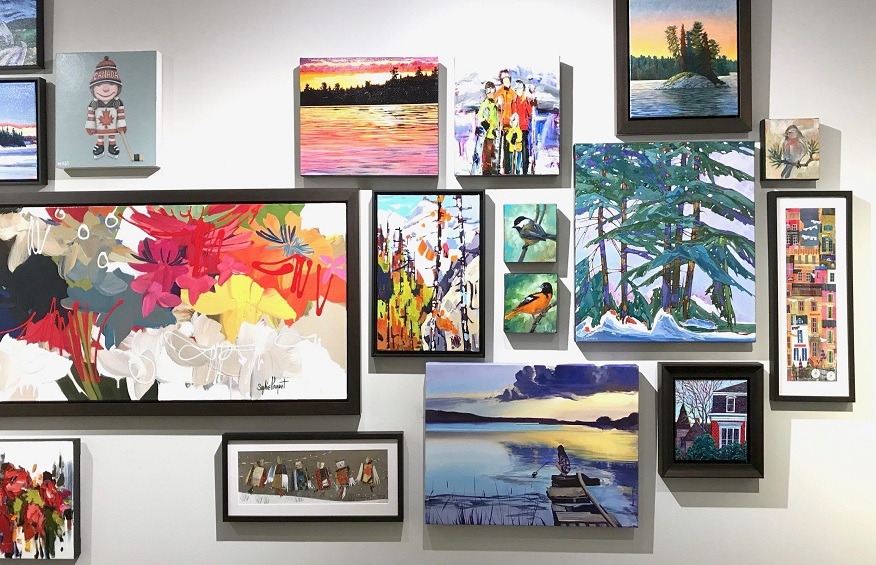observing the artistic creations that surround you with more perspective. At a time when art dresses the public space and when it becomes more democratic, be attentive to these new artistic forms like textured wallpaper. Observe the stenciled tag at the exit of a subway entrance, the poetic sentence written on a white wall at the bend of a street, the Facebook cover of an arty friend. Familiarize yourself with some art education mediums without it being tedious.
If you are familiar with social networks, follow artistic accounts on Instagram, Facebook, Twitter, to sprinkle your days with playful and educational publications on art. For example, the deployment of phonography (digital photography) with social networks like Instagram has driven a large audience to appreciate photography and digital art. If you prefer blogs and print media, subscribe to dedicated newsletters. The works grouped by theme on the site by our experts can help you gradually discover a multitude of works and techniques. In addition, the “best sellers” and “hot artists” in each category can spur you on in your research. Multiply the sources of information, immerse yourself in art!
Understanding the works
The first experience of a work of art is emotional. The emotional baggage that we bring with us helps us to build an experience of the work and to appreciate it without necessarily having recourse to an external explanation. Nevertheless, whatever the intensity of the emotion felt, to think that a work of art is sufficient in itself is a romantic fantasy. Only a deep understanding of the artist’s thought allows us to project emotions, a personality, a psychic state onto the work. This creates a bond, helps us to reach a state of empathy with the artist and thus manage to create a personal relationship with the work that we are looking at. Conversely, when we do not have information, the relationship to the work is weakened. Take Rothko’s work for example. One could look at its large squares of colors and get tired of them, thinking that there is little effort. Few of us will be deeply moved by his walk. But, if one knows Rotkho’s anxiety and obsession with abstraction and color, if one knows his ascetic devotion to his art and his evolution from drawing to abstraction, then one can be deeply moved.
Evaluate the works
Defining the value of a work is the hardest part when starting a collection. Traditionally, it is advisable to have some knowledge of the domain before embarking on it. Indeed, the criteria that establish the value of a work are not unanimous. The intellectual dimension of the work and its ability to accommodate scholarly references is at the heart of the criteria for its monetary estimate. The discourse that accompanies the work is therefore what makes it possible to complete the meaning of the work. In short, for the novice, the opus is missing, the instructions for use of the work. Nevertheless, it is important to keep in mind that contemporary art is infinitely more accessible than in previous trends, since it conveys the issues of the time.
You must therefore let yourself be guided by your pleasure, because what interests you is closest to you. It is on this track that we must engage. The identification of works and artists to collect will thus come naturally. Along the way, you will pay attention to the techniques that provoke a particular emotion in you. Reliefs created from impasto layers of paint will make sense, you will begin to appreciate the clean lines of some abstract artists and dislike some highly acclaimed artists. Beginning to form an opinion, a “taste”, based on one’s feelings is the only measure proving that one is on the right track! you will pay attention to the techniques that provoke in you a particular emotion. Reliefs created from impasto layers of paint will make sense, you will begin to appreciate the clean lines of some abstract artists and dislike some highly acclaimed artists.
Beginning to form an opinion, a “taste”, based on one’s feelings is the only measure proving that one is on the right track! you will pay attention to the techniques that provoke in you a particular emotion. Reliefs created from impasto layers of paint will make sense, you will begin to appreciate the clean lines of some abstract artists and dislike some highly acclaimed artists. Beginning to form an opinion, a “taste”, based on one’s feelings is the only measure proving that one is on the right track!

